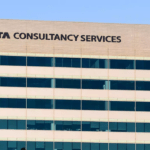Is it incentives, bonuses, or promotions? Can it be the number of leaves and holidays or the goodness of the boss? Is it praise, reward or recognition? Will the fun element at work, the off-sites, team spirit, or competition act as motivating factors?
‘Motivation’ is probably the most commonly used word in the workplace today, by not just the management, but everyone in the organisation. It has turned out to be a mere popular management jargon misunderstood by the majority who use it?
Simply put, when an individual is given a reason to do something or is influenced or forced to perform certain actions, then that force or influence is called motivation. But how does motivation fit into the corporate world?
The workforce performs or continues to deliver as required because of the motivation provided to them. It is motivation that ensures that they remain active, and continue to perform. It forces them to achieve goals and continue on the path of progress. What makes one excited about doing something and not so excited about doing something else? The answers to these questions will describe the term ‘motivation’.
The next question that arises in one’s mind is, which are the factors that motivate the employees and which are the ones that don’t? Is it salary, non-monetary benefits, or monetary benefits? Is it incentives, bonuses, or promotions? Can it be the number of leaves and holidays or the goodness of the boss? Is it praise, reward or recognition? Will the fun element at work, the off-sites, team spirit, or competition act as motivating factors?
Let’s see what each factor has to contribute here and how does it matter.
SalaryOf course, each individual works for money, a fact that everyone will agree upon. The ultimate goal for any employee is ‘money’—it is the basic necessity after all. The importance may be slightly high or low based on the needs. But who has less needs? The more the salary, the more the needs and the higher the need for more money.
Non-monetary benefitsThese benefits are the ones which are not exactly monetary in nature but still comprise a big part for any package the employers may use to lure a potential candidate. These could be benefits, such as performance bonus, incentives, reimbursements, health insurance floater, personal accident cover, PF/gratuity, and many more. Though, all of these do not directly add to the CTC but will add up to an handsome amount if calculated in monetary terms. And, these are one of the reasons why any individual will choose any company offering more of these benefits.
PromotionsPromotions and increment are again big reasons for an employee to be with a company. Every employee wants to be rewarded for their work and one of the best ways is promotions and increments.
Number of leaves/holidays How many leaves or holidays does a company offer? Does it really matter? Yes it does. Holidays are the only time to replenish self and family for another set of working days. In today’s corporate world, there is little time for oneself or family or even important household tasks to be taken care of on working days. Therefore, one waits for leaves or holidays to finish of these routine chores, meet family, friends, go out and enjoy. In times of need if an employee does not get leave, it is a big de-motivator. Employees feel dejected if the organisation fail to understand their priorities and does not support them.
Good BossA good boss is the biggest blessing that any employee can get. It is easy to work with a boss who is cool, easy going, liberal, and one who listens and gives freedom and space to employees. On the other hand, it is difficult to work with bosses who are arrogant, do not give a patient hearing, always command, or do not give space to the team members. However, both types of bosses have their advantages as well as disadvantages.
Praise, reward & recognitionPraise, reward, simple words, but generally people underestimate the power of these. If one’s boss appreciates or praises one or even recognises one for the work done, this praise or appreciation does wonders to one’s confidence.
Fun at workWhat is fun at work? It is the kind of environment that keeps the employees in a lighter mood, free of tension and stress. Fun at work is a simple phenomenon, which takes into consideration the fact that employees stay light hearted and connected to each other and the organisation.
Off-sites Off-sites and outstation meetings cum fun activities organised once in a while, give an opportunity to all the employees to bond well in an informal rather than a formal manner, which normally happens within the office spaces. This informal rapport is stronger and makes the employees aware of the ideology and path of the organisation, as well as the employees’ involvement and standing in the company.
Good teamA good team is one of most desirable stuff for employees. A good team makes them feel connected, energised and active. The team spirit motivates and keeps the competition going.
Habit –Habit is a routine to which employees get accustomed. For instance, working for a company for so long, going to work in the same office, dealing with the same team, sitting at the same workstation, meeting the same kind of targets and enjoying the same work culture become a habit for employees. Such habits play an important role in keeping the employees motivated to a great extent.
CompetitionCompetition amongst teams is also a big motivator. Healthy competition lets the employees feel connected and energised, as each employee wants to perform better than their team members and wants to be ahead of the entire team. This spirit also lets the employees put in their best and keep improving.
Clearly, there is no one single factor responsible for keeping the employees motivated. An ideal mix of all the factors stated above and many more will be required to keep the employees motivated. These factors may differ with the kind of workforce, nature of work and targets as well as their seasonality. However, these are definitely some of the basic factors that should be kept in mind while trying to keep the workforce engaged and motivated.
Value our content... contribute towards our growth. Even a small contribution a month would be of great help for us.
Since eight years, we have been serving the industry through daily news and stories. Our content is free for all and we plan to keep it that way.
Support HRKatha. Pay Here (All it takes is a minute)





































Infact after putting above all there is no guarrantee that employee will be motivated. There is no tested theory also. Accoring to me : Learning & Development initiatives, open culture/ environment , updated Technology, career growth , objective PMS etc, may be help ful to retain / motivate employees.
Completely agree with Dinesh..
Work with great technical peers
Work for a great cause that builds pride
Freedom to explore and innovate; ability to create an impact
are the 3 things that motivate people of any generation!
Salary stands as Common Single Largest Denominator(Motivator) to one and all,whether our Modesty accepts or not
Combination of several Factors/Motivators,depending on context/circumstances….nature of job,invidual aspirations,ability to perform job,Type and culture of industry,the challenging environment,transperancy,fairness….many more factors/Motivators will play a lot.
ERG Theory (Clayton Alderfer)
ERG Theory
There are three groups of core needs: existence, relatedness, and growth.
Core Needs
Existence: provision of basic material requirements. –Physiological, Safety
Relatedness: desire for relationships.- Social
Growth: desire for personal development.-Self Esteem, Actualisation
Concepts:
More than one need can be operative at the same time.
If a higher-level need cannot be fulfilled, the desire to satisfy a lower-level need increases.
In fact different people have their own specific level of need, greed and motivational inclinations. Nothing can be generalised. A compatible boss plays a major role in the team motivation.
Of course, salary is the biggest denominator for an employees but other benefits are also play an important role to motivate employees and encourage him/her to bring something new to organisation.
Thanks guys for reading and liking the article. Your views are valuable.